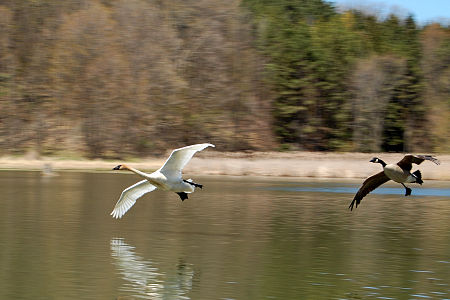Kortright Centre for Conservation

The Kortright Centre for Conservation is a suburban conservation area and educational facility in Vaughan, Ontario, Canada in the northern part of the Greater Toronto Area. It is operated by the Toronto and Region Conservation Authority. The area in which it is located is predominantly forested in its western and northern extent. The Humber River is situated in the west and the Cold Creek and Harris Creek are to the north. The 325 hectare facility opened in 1979. There is a 16 km trail network for hiking and snowshoeing, a Visitor Centre, and several demonstration sites. Inside the Visitor Centre there is a gift shop, a theatre, and space for educational programs, weddings, and events. The access to the pathway leading to the syrup shacks is located at the northeast exit of the Visitor Centre. The Earth Rangers Centre is situated about 500 m south of the Visitor Centre. The facility was used as the location of the Somafree Institute in David Cronenberg's film The Brood (1979). The facility is named after Francis Kortright (1887–1972), an engineer, businessman, author and dedicated conservationist.
Excerpt from the Wikipedia article Kortright Centre for Conservation (License: CC BY-SA 3.0, Authors, Images).Kortright Centre for Conservation
Kortright Centre Driveway, Vaughan
Geographical coordinates (GPS) Address Nearby Places Show on map
Geographical coordinates (GPS)
| Latitude | Longitude |
|---|---|
| N 43.83202 ° | E -79.5912 ° |
Address
Kortright Centre Parking
Kortright Centre Driveway
L4H 0X9 Vaughan
Ontario, Canada
Open on Google Maps



